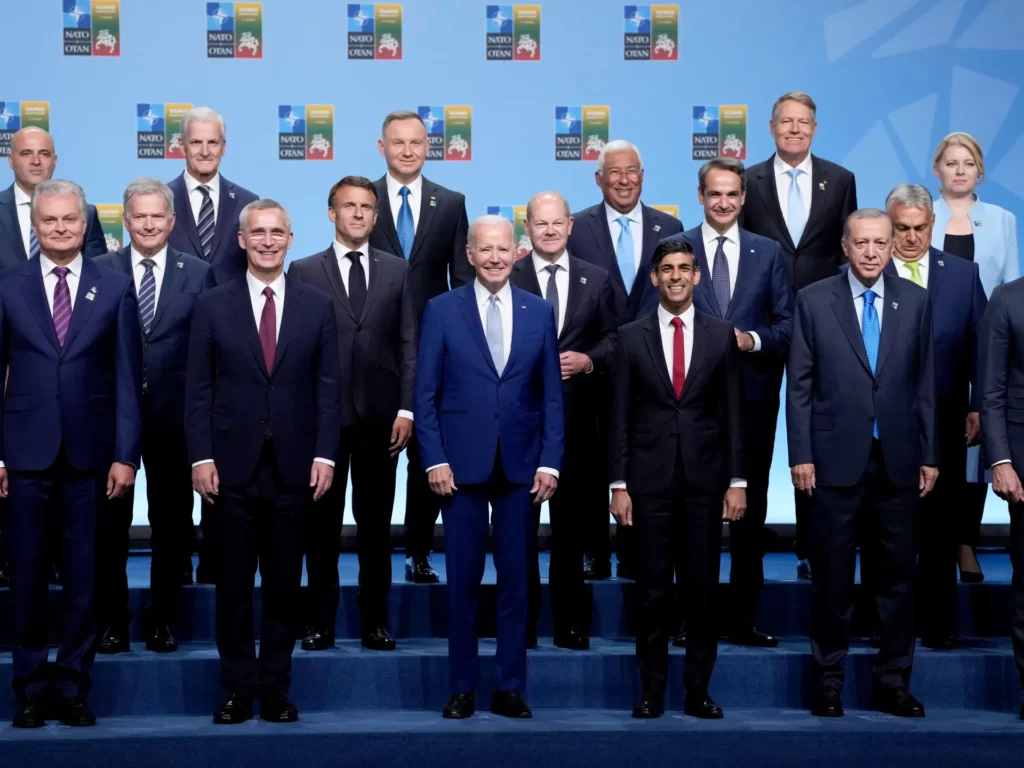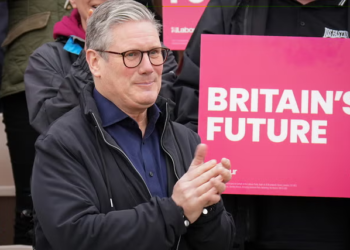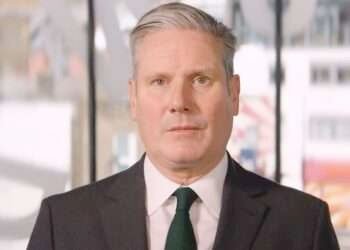Benjamin Haddad, a close party ally of Emmanuel Macron has emphasized that the potential return of Donald Trump to the White House poses an existential risk to European security unless Britain becomes a clear defense partner with the rest of Europe.
Benjamin Haddad has consistently asserted that the significant shifts in US politics, exemplified by the popularity of Trump, demand a greater level of autonomy for European defense, necessitating a decreased reliance on the United States.
“2024 is existential for Europe. If we end up in a situation where America stops helping Ukraine, which is a likely scenario, we have two choices. Either we say we do not have the means to help Ukraine anymore and we go to a negotiation that is more favorable to Putin and look the other way, and as a result, we encourage further aggression down the road not only in Ukraine but elsewhere. Or we put in motion the means to help Ukraine to be able to defend itself without the US, and that is what Macron advocated recently.”
Benjamin Haddad
Haddad’s presence in London included discussions on the potential role of the UK in strengthening European defense capabilities.
His visit gained increased urgency amidst President Trump’s public threats to NATO’s future and the deadlock in the US Congress over a Ukraine aid package.
As the author of “Paradise Lost,” a book analyzing the implications of Trump’s presidency for Europe, Haddad remarked, “In 2016 when Trump was elected many Europeans and Americans wanted to think this was an accident of history or a consequence of Russian interference in the media, but not that it was the harbinger of things to come and deeper trends.
He said, at present, Trump enjoys significantly more favorable poll numbers compared to 2016. While his future actions in office remain uncertain, Trump doesn’t necessarily need to formally withdraw from NATO to pose a challenge to the alliance’s credibility.
“The uncertainty already is a strategic challenge for Europe especially when it comes to Ukraine. I fear it is much harder for Congress to come to a compromise on a package of aid in an election year. We have to read the writing on the wall. There is in the US a long-term pivot to south-east Asia, and to unilateralism.”
Benjamin Haddad
“The Americans have been warning us for a long time. Robert Gates, the US defence secretary under Barack Obama, warned that the next generation of Americans will not be willing to pay for European’s security.”
Stronger Europe Means Stronger NATO

Haddad asserted that strengthening European defense is the best way to uphold the transatlantic alliance’s strength. He challenged the conventional wisdom that doing so would alienate the United States, arguing that such a perspective is outdated.
He said, “It is extraordinarily counterproductive to think you can keep Americans anchored in Europe by showcasing our weakness, divisions, and inability to act. That is what will drive them away.”
He noted that the increasing alignment of perspectives across Europe regarding the magnitude of the Russian threat had already led to significant increases in European defense budgets.
However, he emphasized that Europe must now transition to a wartime mentality in terms of weapons production.
Additionally, Haddad advocated for the adoption of Estonia’s proposal for defense bonds to bolster a more robust common European defense procurement capacity, providing industry with stability. Furthermore, he suggested tapping into Russian central bank assets to aid in Ukraine’s reconstruction efforts.
Furthermore, he highlighted that if voters were to support higher defense expenditures, they would expect a greater portion of those funds to be allocated towards creating jobs within Europe, rather than outsourcing to countries like the US or South Korea.
READ ALSO: Labour’s Big Win In Kingswood By-Elections





















